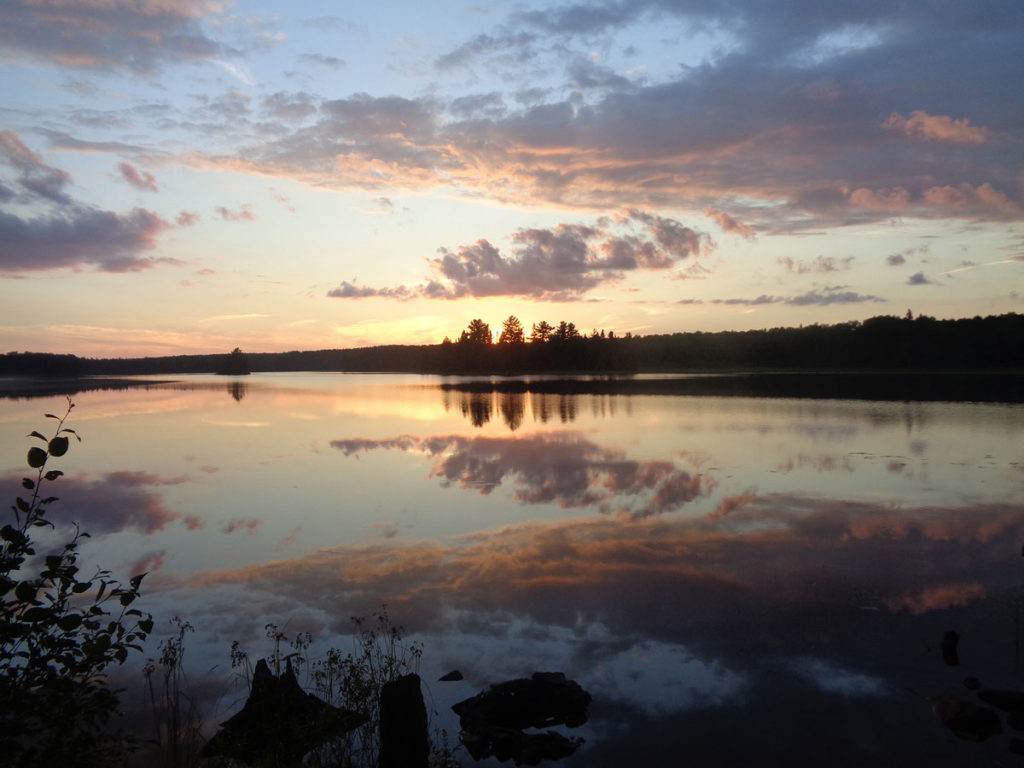
The two words wilderness and camping may sound a bit rugged, especially when combined. Think bears walking into camp at night or meeting you on a trail. Not to mention, no bathroom. No refrigerator. Cell phones don’t work. Difficult terrain. And campfire cooking doesn’t come with a temperature dial like your kitchen stove.
What really matters to wilderness camping are two other words: where and how.
There are more than 109 million acres of public land protected under the National Wilderness Preservation System in the U.S. That’s about 760 wilderness areas where you can camp and officially call yourself a wilderness camper.
But how you camp is more important. How you camp will determine if you’re in for a rugged adventure and whether you start planning next year’s trip while still on this year’s.
Gear and food matter a lot to the how, of course. But if you really want to have a memorable time, think seriously about your phone. Don’t bring it, or at least put it on airplane mode for your trip.
Better yet, go somewhere without cell reception. Solitude without cell reception is a recipe for creating lifelong memories. (If you have safety concerns, consider carrying a GPS tracker.)
Here are just five reasons it’s sort of crazy not to go wilderness camping.
1. Brilliant starry nights
Looking skyward on a clear night in the wilderness, you’ll see a show of stars that never plays in the city and suburbs. It is simply awe-inspiring, no matter how often you witness it. The Milky Way is about 12 billion years old, but it hasn’t lost its ability to make you turn your head 360 degrees.
With a tiny bit of research on stars ahead of your trip, you could mesmerize your daughter with all kinds of interesting facts about the nighttime sky.
2. Nighttime sounds
What is it about toads bumping into the side of the tent at night? Other than the fact that toads are nocturnal creatures, and are probably just going about their way, we’re not sure. But when one bounces against your tent for the first time, the sound it makes is captivating simply because you don’t what could possibly be making that sound.
Loons make four distinct calls, used to communicate with each other, and it’s especially cool when they call at night. A loon wail at night can sound like a wolf howling. The first time I heard loons yodeling at night, deep in the Canadian wilderness, I was a bit freaked out. I thought something was being attacked. Now their yodels fascinate and lull me to sleep. Other sounds include the tremolo and one-note hoot.
A beaver slapping the lake surface after nightfall can sounds like a bear cannon-balling into the water. But fear not. That beaver is probably just warning other beavers of nearby danger. It’s just one more cool experience and something to talk about.
Some nights bring a cacophony of crickets, coyotes in the distance, or silence. Quiet or loud, the wilderness at night is something to cherish.
3. Swimming in a drinkable lake
In Quetico Provincial Park, Ontario Canada, some campers drink straight from the lake without any ill aftereffects. Imagine swimming in those lakes.
Perhaps the only downside to swimming in a wilderness lake is you may never feel the same about a swim in your local lake.
Not all wilderness lakes offering exceptional swimming and most likely are not drinkable, even though you will find people who drink straight from lakes in the BWCA and Quetico without ill effects. We filter, even in Quetico.
Regardless of whether you drink from a wilderness lake, a refreshing swim in one, especially when you’re alone and surrounded by forest, is special.
4. Cooking meals
If you don’t like to cook, you may love camp cooking. Freeze dried foods have come a long way. A tasty meal requires only boiling water and about 10 minutes.
If you’re car camping, you can prepare meals ahead of time and freeze them in a boil bag, then put them in a cooler. A boil bag is a bag specially made to withstand boiling water.
Here’s a boil-bag meal idea: Stir up a few eggs, add ingredients like cooked ham pieces or veggies, and freeze it. When you’re ready for a hot, easy-to-make omelette, place your bag in boiling water.
Meal time outdoors is a great time for conversation. If your family, like many other families these days, doesn’t sit down together at dinner often enough, camp cooking is a great way to get some of that time back.
5. Dragonflies
Dragonflies are amazing. Maybe it’s just us, but have you ever had one land on you? They never seem to land on us unless we’re on a wilderness lake. When they do, especially the first time, it’s a sight to behold.
Adult dragonflies eat mosquitos. So now the next time you wonder why mosquitos even exist, you know.
Dragonflies have sharp, serrated jaws for chomping insects. They’re not strong or sharp enough to bite you, and very few dragonfly species will even try.
They can fly sideways and backwards, and hover. Their heads are all eyes. They’ve been around for 300 million years.
It’s all about sharing experiences.
The memory you make while camping gets amplified because you’re sharing it. Who doesn’t love to introduce their kids to a new experience? Or even a new version of an old experience?
Pretty much nobody.
Studies conducted by psychologists show that people rate shared experiences much more intensely than people who underwent them alone.
But you don’t need a study to tell you that.
All you need is to go and do it.